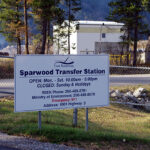Home »

Are the U.S. and North Korea standing on the brink?
 “Perceptions,” by Gerry Warner
“Perceptions,” by Gerry Warner
How many of you realize that next month marks the 55th anniversary of the day the world stood on the brink of thermo-nuclear war that could have ended civilization as we know it?
Yes, I’m talking about the Cuban Missile Crisis in October 1962 when U.S. President John Kennedy and Soviet Union Chairman Nikita Khrushchev bristled toe-to-toe over nuclear missile launch pads the Soviets were building in Cuba less than 90 miles from the Florida coast.
I bet many of you of a certain age remember those tumultuous days well as many of us went to bed at night wondering what kind of world waited us in the morning. It was the height of the Cold War between U.S. and Russia. Some people had fallout shelters in their back yards and memories of the Second World War were still fresh as were the horrors of Hiroshima and Nagasaki.
The crisis went on for 13 agonizing days with Kennedy and Khrushchev exchanging barbs while diplomats engaged in frantic calls behind the scenes in a desperate effort to avoid catastrophe. Fortunately for those of us alive at the time and for you yet unborn both Kennedy and Khrushchev were sane, strong and intelligent leaders, who appreciated exactly what was at stake, namely the future of our species.
With the mighty Soviet fleet approaching and Cuban President Fidel Castro urging them on, Kennedy imposed a quarantine on the bellicose Caribbean nation and blockaded its coasts while the Soviet fleet steamed on. A confrontation seemed inevitable and almost everyone in the world with a TV set anxiously watched the six-o-clock news – no Internet in those days – to see what the terrifying outcome would be.
Fortunately, Khrushchev and Kennedy were not cut from the same cloth as current U.S. President Donald Trump and North Korean President Kim Jong-un. Both of them urged their respective negotiators behind the scenes to somehow find a solution that would enable both leaders to save face and steer the world away from nuclear Armageddon. In order to do this, they established what become known as the “hot line” between Washington and Moscow, a secret security line that exists between the two world powers to this very day.
Kennedy had to deal with military generals, who after the ‘Bay of Pigs’ fiasco when the U.S. backed down from Castro, were aching to invade Cuba. One was General Curtis LeMay, a figure satirized as General Jack Ripper in the classic 1964 movie ‘Dr. Strangelove’ or ‘How I Learned to Stop Worrying and Love the Bomb’ while Khrushchev had his hands full dealing with his trigger-happy generals. Fortunately, it was Khrushchev that “blinked” this time and ordered his fleet to turn around before it encountered the American blockade and certain war. Russia withdrew its missiles and later the U.S. secretly did the same with missiles it had stationed in Turkey within striking distance of Moscow.
And Hallelujah! The world was saved. At least for a time.
But that was then and this is now and here we are with two nuclear-armed nations threatening a re-run of the Cuban Horror Missile Show so to speak. We don’t need this.
In a recent online article in the New Yorker entitled “On the Brink,” by staff writer Evan Osnos, who was recently allowed to visit the Hermit Kingdom and interview senior North Korean officials a grim picture emerges.
Osnos says Trump’s recent tweet threatening North Korea with “fire and fury” doesn’t bode well against a belligerent and reclusive country where paranoia often substitutes for reason. “Trump may abandon the one thing that has prevented war in the past: U.S. restraint,” he says. “In embracing new rhetoric and rationale, the U.S. risks a spiral of hostility . . . that may goad each other (Trump and Kim) into the very conflict that they are both trying to avoid.”
In other words, nuclear war between the U.S. and North Korea may begin accidentally more than anything else. About all I can add is pray for peace.
– Gerry Warner is a retired journalist and a life-long peacenik.







